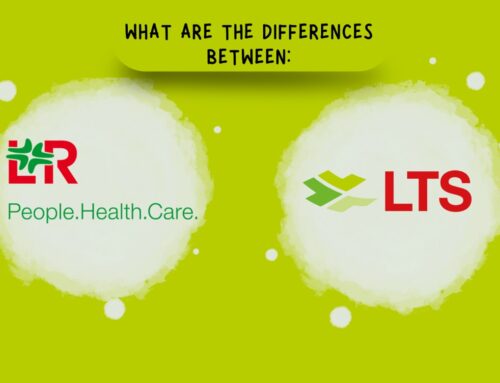
First of all, a brief recap of the material from our last blog post :-)
CSR (Corporate and Social Responsibility) is a voluntary value system for companies that goes beyond legislation. It focuses on philanthropic and social initiatives. It has grown historically and is based on social responsibility from the years of the industrial revolution.
ESG (Environment, Social and Corporate Governance) is mandatory for companies such as LTS and is increasingly subject to regulatory requirements. It focuses on the financial aspect and risk management. The term ESG was first popularized in a 2004 report entitled “Who Cares Wins”, which was a joint initiative of financial institutions at the invitation of the UN.
Sustainability
Sustainability is a term that has been used in different ways for a long time. Hans Carl von Carlowitz (1645 – 1714) is regarded as the father of sustainability, who said that a forest should only be cut down to the extent that it can regenerate naturally in the foreseeable future. In 1987, the United Nations Brundtland Report defined sustainable development as “development that ensures that future generations will be no less able to meet their needs
“Sustainable development is development that ensures that future generations are no less able to meet their needs than those living today.” There were also other attempts at definitions before and after this, from different perspectives and approaches. Today’s concept of sustainability is the sum of numerous definitional approaches that take into account the various elements in the areas of the environment, social issues and corporate governance (ESG). The United Nations adopted the 2030 Agenda in 2015. At the heart of this are the 17 Sustainable Development Goals (SDGs), which are currently shaping the image of sustainability.
But what do these philosophies have in common?
They aim to achieve positive results in the areas of the environment, social issues and corporate governance. They are based on the general sustainability goals.
Their focus is on the future of our planet and its people.
Studies by various institutions show that companies that integrate ESG and CSR principles
- achieve a higher level of stakeholder satisfaction
- achieve a higher level of long-term value creation
- show a higher level of employee engagement and employee retention
- contribute to brand reputation and customer loyalty
- attach increasing importance to sustainability in corporate management
The LTS sustainability strategy
LTS is committed to four areas in various aspects of sustainability, analogous to the definitions of ESG:
- For the planet – environment (E)
- For people – social (S)
- For fairness and transparency – corporate governance (G) and
- For patients – as the overarching purpose and benefit of LTS.
In concrete terms, this means for the environment: climate neutrality, reducing our consumption of resources and waste and implementing recycling measures,
For the social sphere, creating sustainability for our employees in order to improve the health and well-being of people at LTS and in our environment. Job security, fair pay, local health initiatives and structural partnerships with charities are essential here.
For company management, it means fairness towards colleagues, transparency towards our internal and external stakeholders and comparability of our key figures through the application of internationally recognized rules.
A lot of material? Hard to digest?
Then we’re already looking forward to our next blog post! That’s when we’ll finally go into practice and present our great charities!
We CARE. We CREATE. We DELIVER. Photo: LTS Lohmann Therapie-Systeme AG





